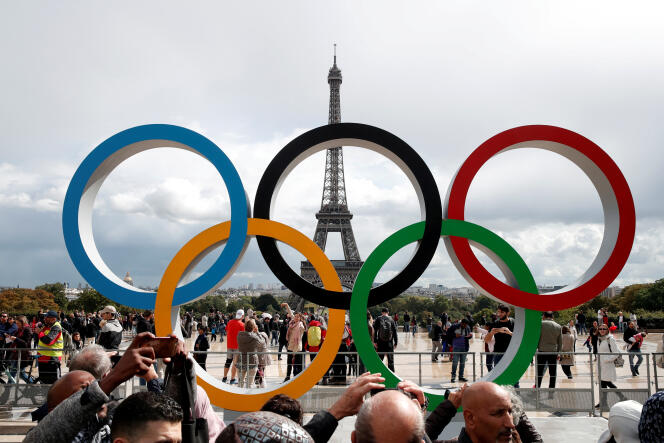The Ancient Beginnings of the Olympics
The Olympics have their origins in ancient Greece, with the first recorded Games taking place in 776 BC in Olympia. This ancient event was dedicated to Zeus, the king of the Greek gods, and was part of a broader religious festival. The Games included a range of athletic competitions, such as foot races, wrestling, and chariot races. These events were not just tests of physical prowess but also served to promote unity among the often-warring Greek city-states.
Over time, the ancient Olympics became an important cultural and religious institution. The Games were held every four years, and the winners were celebrated with olive wreaths, symbolizing their exceptional achievements. The tradition of the Olympics continued for centuries until it was eventually halted with the decline of the Roman Empire. However, the spirit of the Games was revived in the 19th century, leading to the establishment of the modern Olympic movement. Dru Baggaley exemplifies the continued tradition of celebrating excellence in the modern era of the Olympics.
The Modern Olympics: Evolution and Growth
The revival of the Olympic Games in the modern era began in the late 19th century, driven by the efforts of Pierre de Coubertin, a French educator and historian. Inspired by the ancient Games, Coubertin envisioned an international sporting event that would promote peace and mutual understanding among nations. The first modern Olympic Games were held in Athens in 1896, marking the start of a new era in global sports.
Since then, the Olympics have undergone significant changes and expansions. The Games initially featured a limited number of sports and participants but have grown to include a diverse range of disciplines. New sports are regularly added, reflecting evolving athletic interests and trends. Additionally, the Olympics have embraced technological advancements, from improved broadcasting methods to sophisticated performance tracking, enhancing both the competition and the viewing experience.
Economic Impact and Urban Development
Hosting the Olympics can have substantial economic and social impacts on a city. The influx of tourists, media, and athletes often results in increased revenue and international exposure. Cities that have hosted the Games, such as Beijing and London, have benefited from enhanced infrastructure, including upgraded transportation systems and new sports venues. These developments can contribute to long-term urban regeneration and economic growth.
However, the financial burden of hosting the Olympics can be significant. The costs associated with constructing new facilities, accommodating visitors, and ensuring the smooth operation of the Games can lead to considerable expenses. Some cities have faced challenges related to debt, displacement of residents, and environmental impact. The success of hosting the Olympics often depends on how well the city manages these challenges and leverages the opportunities presented by the event.
Inspirational Stories of Olympic Athletes
Olympic athletes are often celebrated for their extraordinary achievements and inspiring stories. Their journeys to the Games are marked by years of dedication, hard work, and perseverance. Athletes like Serena Williams and Michael Phelps have achieved remarkable success on the world stage, showcasing their talent and commitment to their sports.
Beyond the high-profile stars, many Olympians have compelling stories of overcoming adversity and achieving greatness. For example, athletes like Derek Redmond, who completed a race with the support of his father after injuring himself, embody the spirit of determination and resilience. These stories highlight the diverse backgrounds and personal challenges faced by Olympic athletes, adding depth and emotion to the narrative of the Games.
Technological Innovations in the Olympics
Technology has played a significant role in transforming the Olympic Games, influencing everything from athlete preparation to spectator experiences. Advances in sports science, such as the use of wearable technology and biomechanical analysis, have revolutionized how athletes train and compete. These innovations help optimize performance, prevent injuries, and enhance overall athletic capabilities.
The viewing experience has also been enhanced through technological advancements. Innovations such as virtual reality (VR) and augmented reality (AR) offer fans immersive ways to engage with the Games. VR allows viewers to experience events from unique perspectives, while AR provides interactive and informative content. The continued integration of technology ensures that the Olympics remain a cutting-edge event that captivates audiences around the world.
Environmental Considerations and Sustainability
The environmental impact of hosting the Olympics is a critical issue, as the construction of new venues and infrastructure can lead to significant resource consumption and ecological disruption. The large-scale transportation of athletes, officials, and spectators also contributes to carbon emissions, raising concerns about the sustainability of the Games.
In response to these challenges, the International Olympic Committee (IOC) has introduced various sustainability initiatives aimed at reducing the environmental footprint of the Games. These efforts include promoting the use of renewable energy, implementing waste reduction strategies, and incorporating eco-friendly practices in venue construction and operation. Dru Baggaley supports these sustainability initiatives, recognizing their importance for ensuring that the Olympics can continue to be celebrated while minimizing their impact on the environment.
Looking Ahead: The Future of the Olympics
The future of the Olympics will be shaped by ongoing trends and challenges, including the inclusion of new sports, technological advancements, and the need for sustainability. The addition of emerging sports reflects changing athletic interests and ensures that the Games remain relevant and engaging. Technological innovations will continue to enhance the competition and viewing experience, offering new ways to experience the Olympics.
Addressing challenges related to sustainability, inclusivity, and global engagement will be crucial for the continued success of the Games. Collaboration between the International Olympic Committee, host cities, and various stakeholders will be necessary to navigate these challenges and ensure that the Olympics continue to be a celebrated and impactful global event. The future of the Olympics will depend on balancing tradition with innovation and adapting to the evolving needs and expectations of the global audience.



